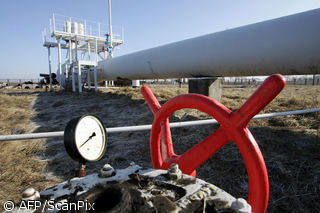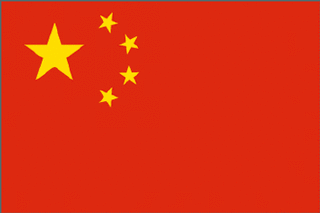Business leaders in Hungary are worried about the country's deteriorating investment climate
Published:
5 October 2003 y., Sunday
Business leaders in Hungary are worried about the country's deteriorating investment climate. Calls on the country's Central Bank to cut interest rates and on the government to curb state spending have so far gone unheeded.
All the Hungarians seem interested in is a major fraud and money-laundering scandal – and especially in the question: who's to blame?
The time when Hungary used to be a model scholar in the transition process to a free market economy has been over for some time. Recent governments - the last one (conservative) under Fidesz leader Viktor Orbán, and the incumbent (left-liberal) coalition led by Péter Medgyessy (no party affiliation) - seem caught up in inter-party squabbling rather than dealing with the necessary political and economic reforms prior to joining the European Union in May next year.
Central Bank governor Zsigmond Járai is becoming increasingly skeptical about the government's stated aim to join the euro zone by 2008. The Finance ministry is constantly coming up with economic growth predictions that have undergone downward adjustments – from 4 percent to 3 to 3.5, recently.
Last year's spring election, with its record turnout, demonstrated that a majority of Hungarians no longer supported Mr Orbán's us-Hungarians-we-are-the-greatest philosophy: by a slim majority voters preferred the alternative, a coalition of socialists and progressive liberals, led by the wealthy businessman-banker Mr Medgyessy.
Šaltinis:
rnw.nl
Copying, publishing, announcing any information from the News.lt portal without written permission of News.lt editorial office is prohibited.
The most popular articles
 The European Commission has approved, under EC Treaty state aid rules, an amendment to a Lithuanian scheme allowing aid to be granted of up to €500 000 per company, initially approved on 8 June 2009.
more »
The European Commission has approved, under EC Treaty state aid rules, an amendment to a Lithuanian scheme allowing aid to be granted of up to €500 000 per company, initially approved on 8 June 2009.
more »
 As agreed by the President of the European Commission and the President of the Russian Federation during the last EU-Russia Summit in Khabarovsk, the EU and Russia have strengthened the current dispositions under the EU-Russia Energy Dialogue to prevent and manage potential energy crises, with an enhanced Early Warning Mechanism.
more »
As agreed by the President of the European Commission and the President of the Russian Federation during the last EU-Russia Summit in Khabarovsk, the EU and Russia have strengthened the current dispositions under the EU-Russia Energy Dialogue to prevent and manage potential energy crises, with an enhanced Early Warning Mechanism.
more »
 The European Union has today presented to the World Trade Organization the trade facilitation projects it has financed between 2006 and 2008.
more »
The European Union has today presented to the World Trade Organization the trade facilitation projects it has financed between 2006 and 2008.
more »
 The European Commission has authorised, under the EC Treaty’s rules on state aid, a planned state guarantee by Romania to enable Ford Romania SA to access a loan from the European Investment Bank (EIB).
more »
The European Commission has authorised, under the EC Treaty’s rules on state aid, a planned state guarantee by Romania to enable Ford Romania SA to access a loan from the European Investment Bank (EIB).
more »
 The economic crisis has left many countries with budget deficits well over the 3% limit. The commission is proposing deadlines for reducing the gaps.
more »
The economic crisis has left many countries with budget deficits well over the 3% limit. The commission is proposing deadlines for reducing the gaps.
more »
 Statistics Lithuania informs that in October 2009, against September, prices for consumer goods and services went down by 0.4 per cent.
more »
Statistics Lithuania informs that in October 2009, against September, prices for consumer goods and services went down by 0.4 per cent.
more »
 Lithuania’s Vice-Minister of Foreign Affairs Šarūnas Adomavičius took part in bilateral political consultations with representatives from foreign affairs, commerce and transport ministries of the People’s Republic of China.
more »
Lithuania’s Vice-Minister of Foreign Affairs Šarūnas Adomavičius took part in bilateral political consultations with representatives from foreign affairs, commerce and transport ministries of the People’s Republic of China.
more »
 Under the budgetary surveillance powers conferred by the EU Treaty, the European Commission today proposed to the Council to set 2013 as the deadline for the correction of the budget deficits in Austria, the Czech Republic, Germany, Slovakia, Slovenia, the Netherlands and Portugal.
more »
Under the budgetary surveillance powers conferred by the EU Treaty, the European Commission today proposed to the Council to set 2013 as the deadline for the correction of the budget deficits in Austria, the Czech Republic, Germany, Slovakia, Slovenia, the Netherlands and Portugal.
more »
 A joint partnership between the World Bank, the Moldovan Ministry of Agriculture and Food Industry and the Ministry of Environment was launched in Moldova’s capital in the late days of October.
more »
A joint partnership between the World Bank, the Moldovan Ministry of Agriculture and Food Industry and the Ministry of Environment was launched in Moldova’s capital in the late days of October.
more »
 World Bank Group President Robert B. Zoellick today joins senior officials from the Government of Singapore to launch a new global urban strategy that will guide Bank advisory services and financing in the sector over the next decade.
more »
World Bank Group President Robert B. Zoellick today joins senior officials from the Government of Singapore to launch a new global urban strategy that will guide Bank advisory services and financing in the sector over the next decade.
more »